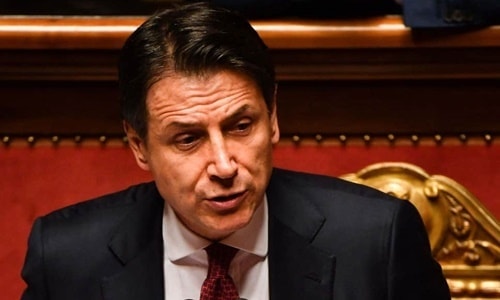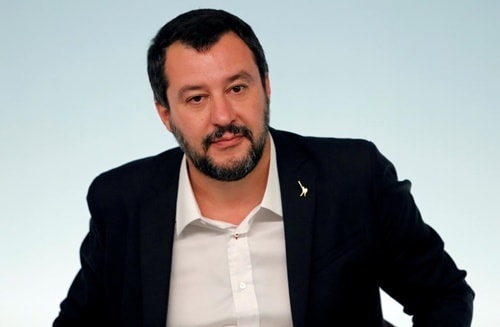Italian Prime Minister resigns
Italian Prime Minister Giuseppe Conte resigned yesterday after criticizing Deputy Prime Minister Matteo Salvini for pursuing personal interests that caused the government to fall into crisis.
|
Italian Prime Minister Giuseppe Conte at a parliamentary meeting on August 20. Photo:AFP |
Giuseppe Conte, 55, announced his resignation in a speech to the Italian parliament on August 20, the first session after lawmakers returned from summer vacation. He accused Deputy Prime Minister, Interior Minister and League leader Matteo Salvini of trying to cash in on his popularity.
"The interior minister has shown that he follows his personal and party interests. His decisions will create great risks for the country," Conte said while Salvini kept a stoic face at his side.
In a surprise move on August 8, Salvini declared the ruling coalition between his League party and the anti-establishment Five Star Movement dead and called for early elections. However, the move is considered to be a major political mistake, opening the door to power for his opponents.
Conte described Salvini's actions as reckless, "risking plunging the country into a spiral of political and financial instability". Politicians from the 5-Star Party and the center-left Democratic Party are openly discussing a new alliance that would push the League into opposition.
|
Deputy Prime Minister Matteo Salvini. Photo:Reuters |
After a debate in the Senate, Conte submitted his resignation to President Sergio Mattarella, who will chair a meeting of the parties to try to form a new government coalition on August 21. If that fails, the President will have to dissolve parliament and an election will take place 3.5 years earlier than scheduled.
Salvini dismissed Conte’s comments, saying other parties were afraid of running in elections and losing influence. He said his political goal was to challenge EU fiscal rules. Salvini blamed the EU for Italy’s troubles, saying Rome needed to spend at least 50 billion euros ($55 billion) to stimulate its ailing economy.



